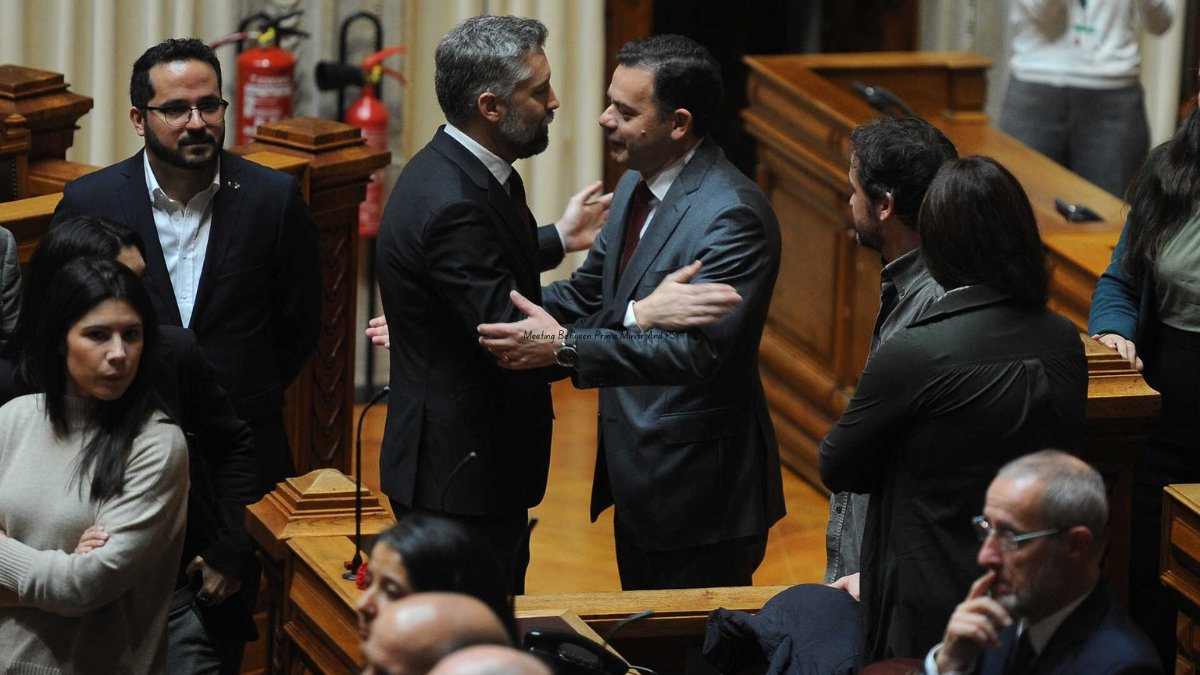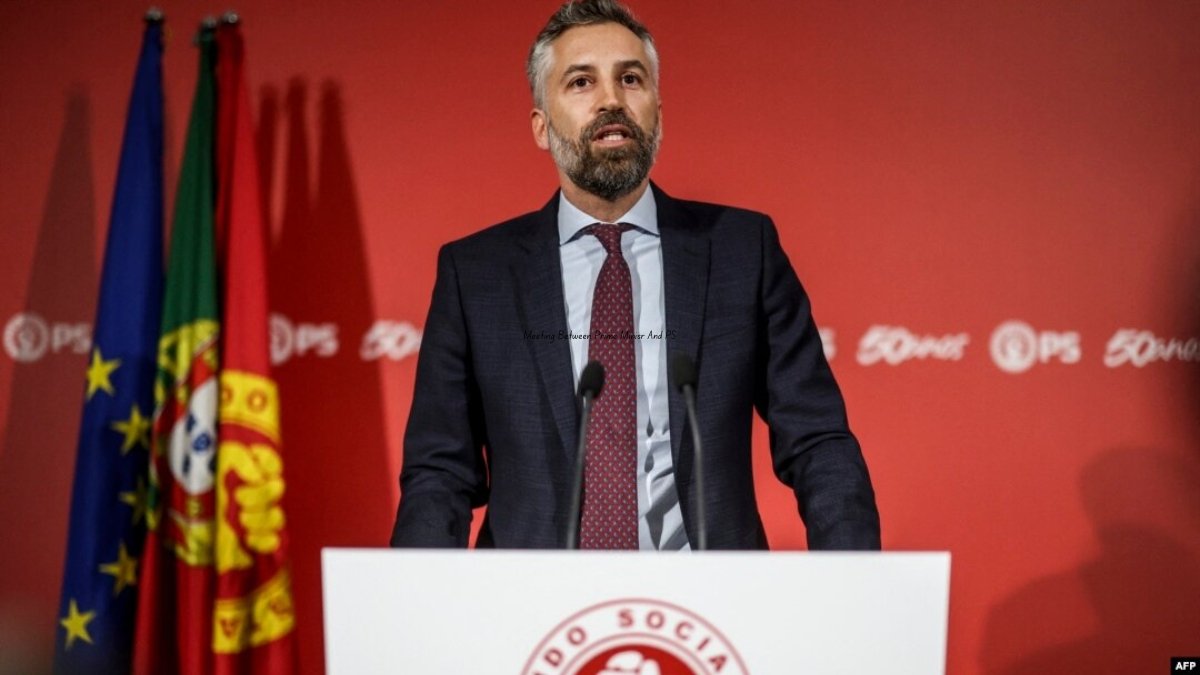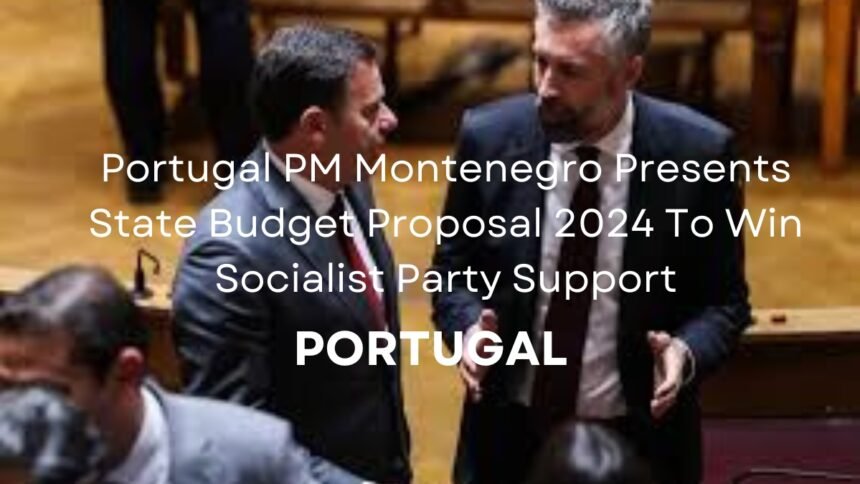Portugal Prime Minister, Luís Montenegro, has revealed a new State Budget proposal for 2024. The goal is to gain support from the Socialist Party (PS) and avoid early elections. Montenegro believes that PS will not refuse the proposal. The plan includes a slight cut in corporate taxes and major changes to the Youth IRS scheme.
Read More About: Portugal State Budget Rejection: Left Bloc Calls for Clarity
Meeting Between Prime Minister And PS

The announcement came after the meeting between Montenegro and PS Secretary-General Pedro Nuno Santos. They discussed key issues and tax reforms in a meeting that lasted 30 minutes.
Montenegro explained:
I just presented to the PS a framework for aligning on tax matters, specifically regarding corporate tax (IRC) and Youth IRS.
The meeting is an important moment in the ongoing talks. Both parties have been working to find common ground to pass the budget without triggering a political crisis.
Corporate Tax Reduction
One of the main features of the new proposal is a slight reduction in corporate tax. Initially, the government planned a larger cut but Montenegro’s team scaled it down to just 1%. This change reflects the input given by the PS during earlier discussions.
In addition to the smaller corporate tax cut, the proposal includes incentives for businesses. Companies will be encouraged to invest more in employee wages and their capital. Another change is a reduction in autonomous taxes on vehicles.
This aims to help businesses manage costs and invest more in their employees. These adjustments are designed to balance the needs of businesses while addressing concerns raised by the PS.
Youth IRS Program Benefits
A key change in the proposal is the expansion of the Youth IRS scheme. The program provides tax relief to young workers. The new plan aims to make it more inclusive and extend the benefits to all young workers, regardless of their education level.
Montenegro said:
We agreed to adopt the PS model from the 2024 budget, with three adjustments that reflect the PS’s electoral platform
Currently, the Youth IRS program is limited to those with academic qualifications. The new plan removes this condition. For young workers in their first year of employment, the changes that are suggested allow a 100% tax exemption.
The exemption then gradually reduces to 75% for the second to fifth year, 50% for the sixth to ninth year, and 25% for the tenth to thirteenth year. This change extends the tax relief period from five years to 13 years.
Montenegro believes that these changes will help young people enter the workforce and build long-term financial stability. The expanded program is also expected to have a positive effect on the economy.
Budget Impact And Economic Goals
The revised budget is expected to cost around €645 million which is much lower than the initial estimate of €1 billion. The lower cost comes from the smaller corporate tax cut and the adjustments to the Youth IRS scheme.
Montenegro stressed that the aim is to boost the economy, attract foreign investment, and create better conditions for young workers.
Montenegro explained:
This approach extends the scope of Youth IRS and increases the duration of tax exemptions, creating better conditions for young people and ensuring a positive economic impact
Read Also: Pedro Nuno Santos Political Stance on State Budget and Stability
PS Leader Wants To Avoid Elections

On Friday morning, PS leader Pedro Nuno Santos spoke briefly to reporters about the new proposal. He said his party is committed to avoiding early elections and ensuring the budget is passed.
Nuno Santos said:
We want to avoid elections and we want to avoid the budget being cancelled. We will make our contribution
His comments suggest that the PS is open to working with the government to find a solution. However, it is still unclear if there is a need for further negotiations.
The State Budget is crucial for the government’s stability. Montenegro’s proposal is an attempt to bring both major parties together. If the budget passes, it will help avoid political instability and early elections.
The next few weeks will be critical as the PS and the government work through the details. If the PS accepts the proposal, it could prevent a political crisis and provide a boost to Portugal’s economy, especially for young workers.
As the discussions continue, the focus will be on how the PS responds and whether Montenegro’s proposal will be enough to secure their support. The outcome will not only affect the government but also the people of Portugal.






